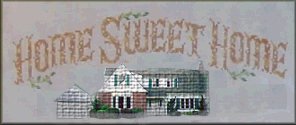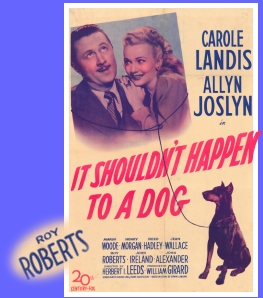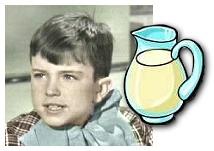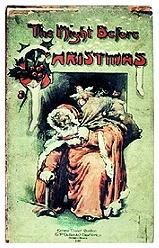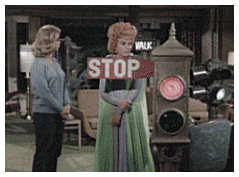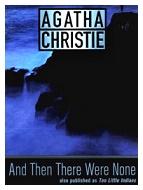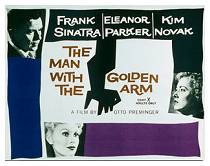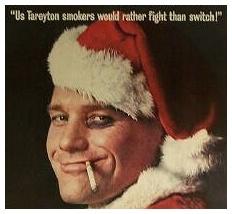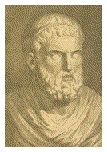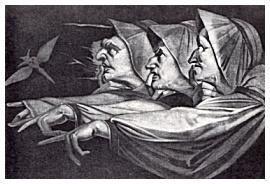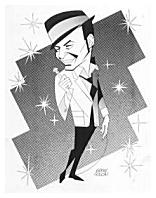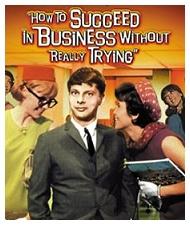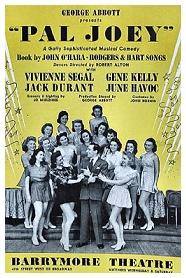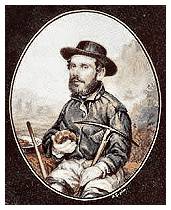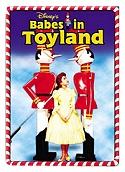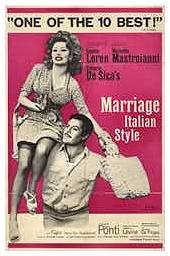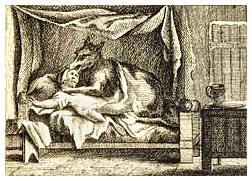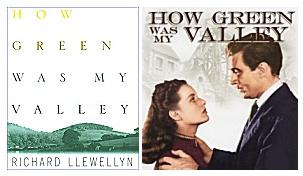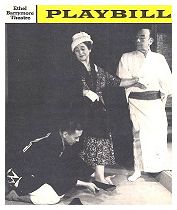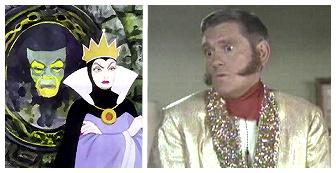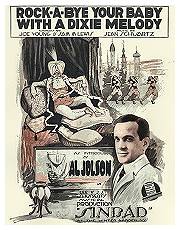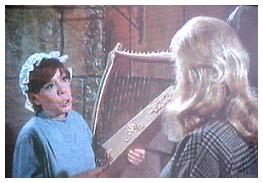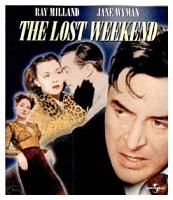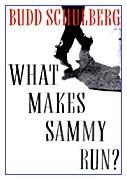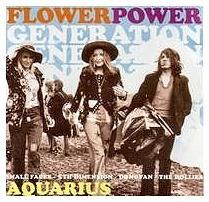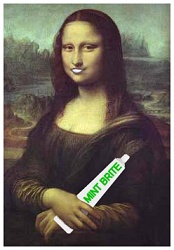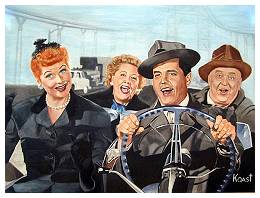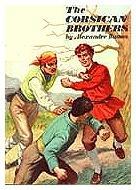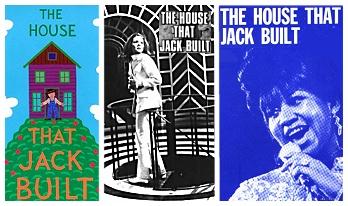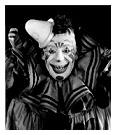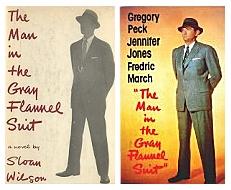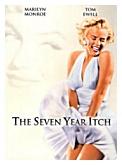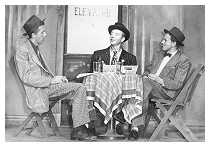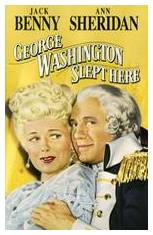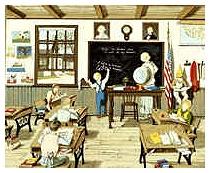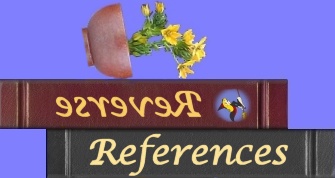 |
2 |
EPISODE TITLES
ALSO SEE:
Reverse
References 1: General
References
# 2, "Be It Ever So Mortgaged," is a play on the lyrics, "Be it ever so humble, there's no place like home," from "Home Sweet Home" (aka "There's No Place Like Home"). This classic was written in 1822 by John Howard Payne (1791-1852). |
|
|
The title of # 4, "It Shouldn't Happen to a Dog," is a common phrase of Yiddish origin, meaning: something terrible that shouldn't happen to anyone. It's of interest to note that of the two movies with this title, the second (1946) version co-starred Roy Roberts (Frank Stephens on Bewitched). |
|
The title of # 6's, "Little Pitchers Have Big Fears," is a take off on the old folk saying, "Little pitchers have big ears," a reference to children overhearing things they should not hear. (In case you are not from the older generation, the handles on pitchers are called "ears.") |
|
|
The titles of the first two season's Christmas episodes, #'s 15 and 51, both named "A Vision of Sugar Plums," are a reference to a line from the poem, "The Night Before Christmas," by Clement Clarke Moore. The children were nestled all snug in their beds, While visions of sugar-plums danced in their heads... |
|
| # 18, "The Cat's Meow" - A phrase originating from the 1920s, "the cat's meow" means a nifty idea, thing or person; something remarkable. The same idea was expressed in several catly ways, including "the cat's whiskers" and "the cat's pajamas." Since the cat has the capability of looking enormously pleased, it is likely that all these expression derived from that appearance of satisfaction." (from "The Dictionary of Cliches" by James Rogers, 1985). | |
| The title of # 22's "Eye of the Beholder" is based on the proverb, "Beauty is in the eye of the beholder." However, in this episode, they seem to be talking about age. | |
# 23, "Red Light, Green Light" - This title derives from the classic game played by children wherein one person is "It" and faces away from the others who are lined up about 15 feet behind them. "It" says, "Green Light," and everyone moves forward with the goal of touching that person. At any time, "It" may say, "Red Light," and all players must freeze in place or else they are out of the game. The game resumes in the same manner until someone touches "It" and the winner gets a turn at being "It." |
|
| # 51, "A Vision of Sugar Plums" - CLICK HERE | |
# 53's title, "And Then
There Were Three," is based on the Agatha |
|
|
Episode # 73's title, "The Girl With The Golden Nose," (broadcast on June 2nd, 1966, the final black & white episode filmed) is a reference to the 1955 Otto Preminger movie entitled "The Man with the Golden Arm" starring Frank Sinatra, Eleanor Parker and Kim Novak. The plot is about a gifted card dealer and recovering heroin addict who, upon his release from prison, struggles to avoid slipping back into his old habits. |
|
Episode # 84's title, "I'd Rather Twitch Than Fight," plays on the Tareyton Cigarettes slogan, in which Tareyton smokers "would rather fight than switch!" Interestingly, this commercial aired during Elizabeth Montgomery's hosting of The Hollywood Palace. |
|
Episode # 85's title, "Oedipus Hex," is a goof on the play Oedipus Rex by Sophocles. |
|
# 94's title, "The Corn is as High as a Guernsey’s Eye," originates from the Rodgers and Hammerstein musical, Oklahoma, and the lyrics "The corn is as high as an elephant's eye..." from the song "Oh, What a Beautiful Mornin'," sung by Curly, the lead male character. Like many movie musicals, it was first a Broadway play in 1943 and then a very popular movie in 1955 with Gordon MacRae and Shirley Jones. This musical was the first time Richard Rodgers and Oscar Hammerstein II collaborated, and they went on to write nine Broadway musicals together. Oklahoma was brought back to Broadway in March 2002 and closed February 2003. |
|
|
The title of # 101, "The Crone of Cawdor," may be derived from "The Thane of Cawdor," a traitor to the King, from Shakespeare's Macbeth. The title of # 111, "Double, Double, Toil and Trouble," is taken from the incantation spoken by the three witches in the Shakespeare play, MacBeth. For more Shakespeare titles - CLICK HERE For regular Shakespeare references - CLICK HERE |
|
Episode # 103's title, "It's Wishcraft," is derived from the lyrics "...It's Witchcraft", contained within Frank Sinatra's song, "Witchcraft". |
|
Episode # 104's title, "How to Fail in Business with All Kinds of Help," is a play on the musical, How to Succeed in Business Without Really Trying, which is about- what else? The ad game. |
|
|
The titles for # 105, "Bewitched,
Bothered and Infuriated" and # 233's
title, "Bewitched, Bothered and Baldoni," are played off of
the 1941 song "Bewitched, Bothered and Bewildered" written
by Rodgers and Hart for the Pal Joey musical. |
|
Episode # 107's title, "There’s Gold in Them Thar Pills," taken from McMann & Tate's prototype packaging for "Dr Bombay's Cold Bombs", is a play on the 19th century Gold Rush expression: "There's gold in them thar hills." |
|
# 109, "Toys in Babeland," is a switcheroo on the 1961 Disney movie, Babes in Toyland. |
|
|
The titles for # 110, "Business, Italian Style" and # 161, "Marriage, Witches’ Style" most likely derive from the 1964 international hit movie Marriage, Italian Style (Matrimonio all'italiana), starring Marcello Mastroianni and Sophia Loren. |
|
| # 111, "Double, Double, Toil and Trouble" - CLICK HERE | |
Episode # 121's title, "My, What Big Ears You Have," is playing off of the dialogue in the famous folktale "Little Red Riding Hood". 'My, what big ears you have' is part of the comments that Little Red Riding Hood made to the wolf in this classic story, which traces back to as early as 14th century France. The tale has been altered numerous times, and made into a variety of movies and books. |
|
The title of # 131, "How Green Was My Grass," was taken from the title of the 1939 novel, "How Green Was My Valley," by Richard Llewellyn, about a Welsh coal-mining village. 1941 saw the book translated into an Oscar winning movie, starring Maureen O'Hara and Walter Pidgeon. |
|
# 136's title, "A Majority of Two," comes from "A Majority of One," a 1959 play starring Cedric Hardwick and Gertrude Berg, about a Japanese businessman and widower, and a Brooklyn widow. A 1962 movie version starred Alec Guinness and Rosalind Russell. Much has been made about the casting of Richard Haydn as the Japanese client in this episode, but it seems Bewitched was consistent in having an English actor play the main Japanese role, as that's how it was cast twice before. |
|
# 145's title, "It's So Nice to Have a Spouse Around the House," comes from the song, "It's So Nice to Have a Man Around the House," written by Jack Elliot and Harold Spina. It's been recorded by many popular female recording artists, including Peggy Lee, Della Reese, and Dinah Shore. |
|
The title of # 146, "Mirror, Mirror on the Wall," refers to Darrin's witchcraft-induced vanity, as it comes from a chant made by the witch from Snow White and the Seven Dwarfs to her magic mirror: "Mirror, Mirror on the wall, Who's the fairest of them all?" |
|
The title of # 152, "Weep No More, My Willow," is a reference to the popular song "Rock-a-Bye Your Baby with a Dixie Melody" which contains the memorable line "weep no more, my lady" at a pivotal point in the song's lyrics. "Rock-a-Bye Your Baby with a Dixie Melody" was written in 1918 by Jean Schwartz, with lyrics by Sam M. Lewis and Joe Young. The song is most commonly associated with Al Jolson and Judy Garland, both of whom recorded hit versions of the song and also performed it numerous times in concert. Diana Ross and The Supremes and Aretha Franklin also recorded their own versions of the song during the late 1960s. |
|
| # 161, "Marriage, Witches’ Style" - CLICK HERE | |
# 171's title, "Samantha and the Beanstalk," references, obviously, the children's fairytail, Jack and the Beanstalk.
Tabitha becomes upset when she thinks that Sam and Darrin prefer boys to girls. They try to allay her fears but that doesn't work and she walks back inside. Darrin asks Samantha "What do you think?". To which Samantha replies "Dr. Spock, we're not". Dr. Benjamin Spock (1903-1998) was a noted pediatrician and author. Also in this episode, Tabitha threatens the Giant, "If you lose your temper, I'll make a dodo out of you". The dodo bird
has been extinct since the mid-to-late 17th century. |
|
|
# 177, "To Trick or Treat or Not to Trick or Treat,"# 201, "To Go or Not to Go, That is the Question,"and # 236, "TV or Not TV," are all from Shakespeare's famous Hamlet soliloquy, "To Be or Not To Be." |
|
The title of # 186, "Samantha’s Lost Weekend," refers to the 1945 movie classic, The Lost Weekend, which was about a man (played by Ray Milland) who went on a weekend alcoholic binge. |
|
# 191, "What Makes Darrin Run?" is taken from the famous 1941 Budd Schulberg book, "What Makes Sammy Run?" |
|
# 194, "The Generation Zap" is a play on the popular "Generation Gap" phrase used in the 60s and 70s. Although generational division and conflict have always been part of human society (even the Bible recognized that often sharp disagreements existed across generations: "...a stubborn and rebellious generation." -Psalms 78:8), 1960's-70's articles about the "generation gap" were at that time widespread in both the mass media and academic journals. |
|
# 198's title, "Mona, Sammy," is a twist on the "Mona Lisa," the famous Leonardo Da Vinci painting. |
|
# 200's "Make Love, Not Hate," is a take-off of "Make Love, Not War," the famous anti-war slogan during the Vietnam war protests. |
|
| # 201, "To Go or Not to Go, That is the Question" - CLICK HERE | |
# 202's "Salem, Here We Come," reckons back to the classic episode of I Love Lucy, "California, Here We Come." William Asher directed it and it was part of the first bunch of episodes where they were going away from the normal set, just like the Bewitched cast and crew did. |
|
# 211's title, "The Corsican Cousins," is taken from "The Corsican Brothers," the 1845 Alexandre Dumas book and 1941 movie starring Douglas Fairbanks Jr., about identical twin brothers who feel what the other experiences. |
|
While the title of # 218, "The House That Uncle Arthur Built," is most likely a play on the 18th century cumulative nursery rhyme, "The House That Jack Built," about the chain of events that started when the character Jack built a house, it's also possible that the writers had in mind the 1966 episode of The Avengers, "The House That Jack Built," in which Emma Peel inherits a house built by a deranged uncle. A house with rooms that can change all by themselves! Or perhaps the writers were thinking about the 1968 classic hit by Aretha Franklin, "The House That Jack Built," when they named Uncle Arthur's girlfriend, Aretha?! |
|
| # 220, "This Little Piggie," is named after the well-known nursery rhyme of the same name. This little piggie went to market... | |
# 227, "Laugh, Clown, Laugh," is from the 1928 Lon Chaney movie of the same name. The theme song from the movie is probably more well known than the movie itself. |
|
| # 233, "Bewitched, Bothered, and Baldoni" - CLICK HERE | |
| # 236, "TV or Not TV" - CLICK HERE | |
The episode title of # 239, "The Warlock in the Gray Flannel Suit," is a take-off of the title from Sloan Wilson's best selling 1955 novel, "The Man In The Gray Flannel Suit". The following year, it was made into a Gregory Peck movie of the same name. |
|
The title of the eighth season episode # 240, "The Eight-Year Witch," is a play on the phrase "Seven Year Itch," in which it was thought that husbands became restless and began to philander after seven years of marriage. 1955 saw a movie with this title, starring Marilyn Monroe. |
|
The title for # 241, "Three Men and a Witch on a Horse," is taken from the 1935 Broadway play and 1936 movie "Three Men on a Horse," a comedy about a nebbishy, stuttering greeting card writer who has a foolproof system for picking race horses. One of the most successful comedies ever staged in American theatre, the play was co-written and produced by the acclaimed Broadway impresario George Abbott and ran from 1935 to 1937 for a total of 835 performances. The play has been successfully revived on Broadway four times: in 1942, in 1961 (when it was staged as a musical under the name "Let It Ride"), in 1969, and most recently in 1993 with Tony Randall and Jack Klugman. |
|
# 249 & 250's titles, "George Washington Zapped Here," refer to Moss Hart and George S. Kaufman's 1940 play and 1942 film, "George Washington Slept Here," the final full-length collaboration of the duo's productions, which were Broadway staples during the 1930s and early 1940s. |
|
# 251's title, "School Days, School Daze," is a send-up of the old children's song, "School Days, School Days." School Days, School Days, Dear Old Golden Rule Days... |
|
| The title of # 254, "The Truth and Nothing but the Truth, So Help Me Sam," is a play on the legal oath in which you swear to: "Tell the truth, the whole truth, and nothing but the truth, so help me God." |
ALSO SEE:
Reverse
References 1: General
References

